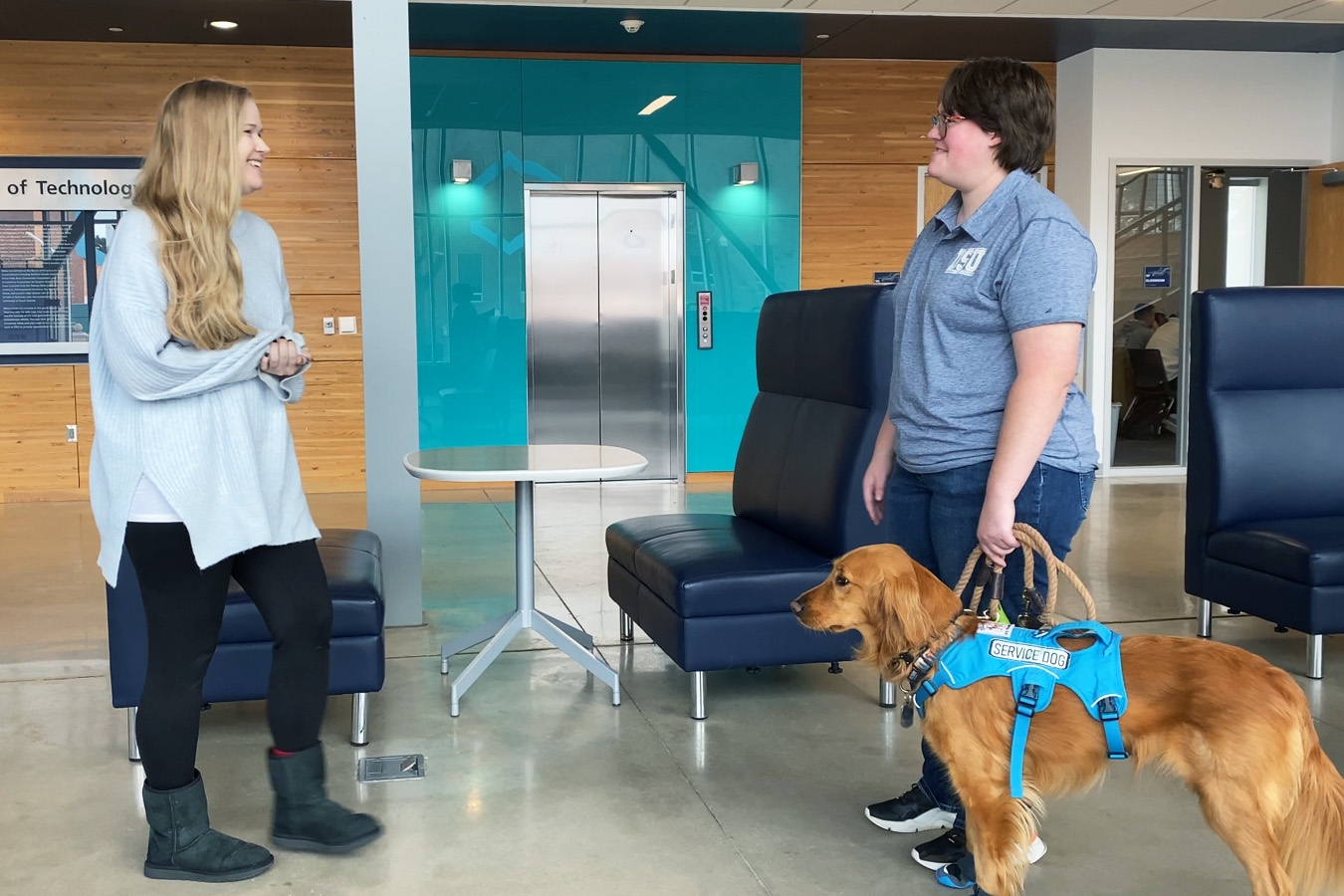Service Animals
January 20, 2023
A service animal is specifically trained to complete a task or service.
They may warn people with diabetes of low or high blood sugar, they may assist someone with epilepsy, or notify someone they’re about to have a panic attack, explained Jordan Schuh, disability and testing services coordinator at DSU.
The disability can be visible like someone in a wheelchair or invisible, explained DSU student and service dog owner Squid Latimer.
People will see service animals all over, Schuh said. They accompany their owners and perform a job.
“As far as interacting with the animals, I always caution people just don’t unless the owner gives you permission,” he said.
Schuh explained, “You shouldn’t be approaching animals without permission anyway, but one of the reasons you should not approach a service animal is that they are tasked with specific things.”

Approaching service animals can distract them from the task at hand, which could potentially cause a missed cue and lead to danger for their owner. It’s also against the law. Legally, no person may maliciously injure or attempt to injure, harass, intimidate, entice, distract, or otherwise interfere with any service animal accompanying a person with a disability.
Having a service animal sometimes means that people see the animal before the person, Latimer said.
In addition to not distracting the service animal, Latimer hopes that educating others on service animals will help people see the service animal owner and the independence they gain from having the animal.
“Do not talk to the dog unless you have very explicit permission from the handler,” Latimer said. “Otherwise act like they do not exist. Unless they come to you without their handler, then that means the handler is down and needs assistance.”
Service animals differ from emotional support animals (ESA). Schuh said that an ESA is a companion animal, often used to give emotional support, provide routine, and help people care for themselves. They’re not trained to do anything specific.
On campus, an ESA is only allowed in a dorm room and shouldn’t be seen unless the animal is being taken out to use the bathroom.